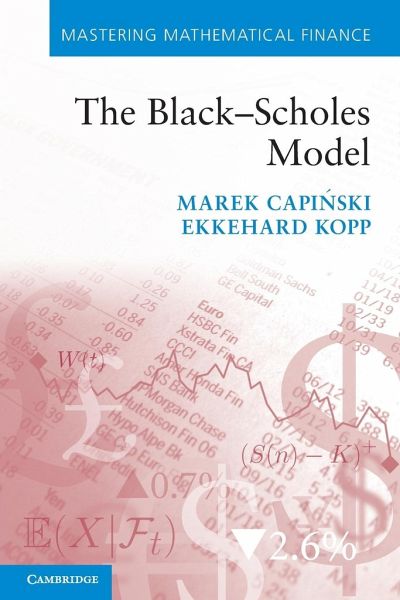
The Black-Scholes Model
Versandkostenfrei!
Versandfertig in 1-2 Wochen
46,99 €
inkl. MwSt.
Weitere Ausgaben:

PAYBACK Punkte
23 °P sammeln!
The Black-Scholes option pricing model is the first and by far the best-known continuous-time mathematical model used in mathematical finance. Here, it provides a sufficiently complex, yet tractable, testbed for exploring the basic methodology of option pricing. The discussion of extended markets, the careful attention paid to the requirements for admissible trading strategies, the development of pricing formulae for many widely traded instruments and the additional complications offered by multi-stock models will appeal to a wide class of instructors. Students, practitioners and researchers a...
The Black-Scholes option pricing model is the first and by far the best-known continuous-time mathematical model used in mathematical finance. Here, it provides a sufficiently complex, yet tractable, testbed for exploring the basic methodology of option pricing. The discussion of extended markets, the careful attention paid to the requirements for admissible trading strategies, the development of pricing formulae for many widely traded instruments and the additional complications offered by multi-stock models will appeal to a wide class of instructors. Students, practitioners and researchers alike will benefit from the book's rigorous, but unfussy, approach to technical issues. It highlights potential pitfalls, gives clear motivation for results and techniques and includes carefully chosen examples and exercises, all of which make it suitable for self-study.




